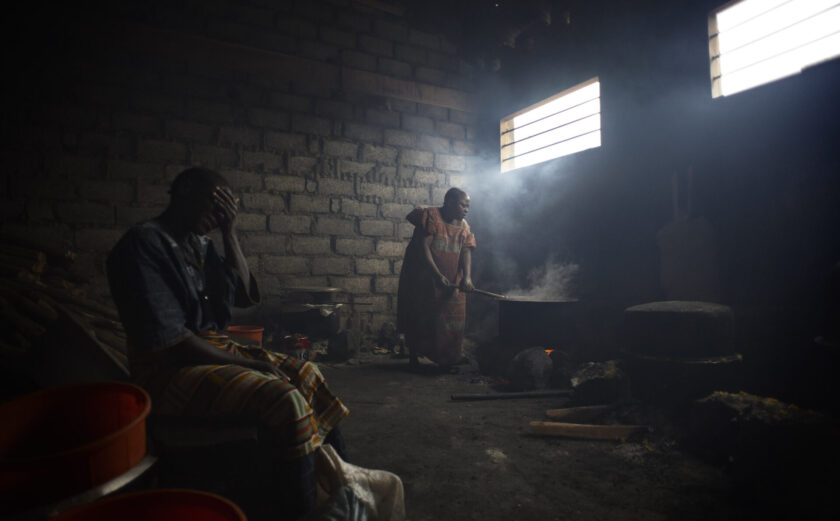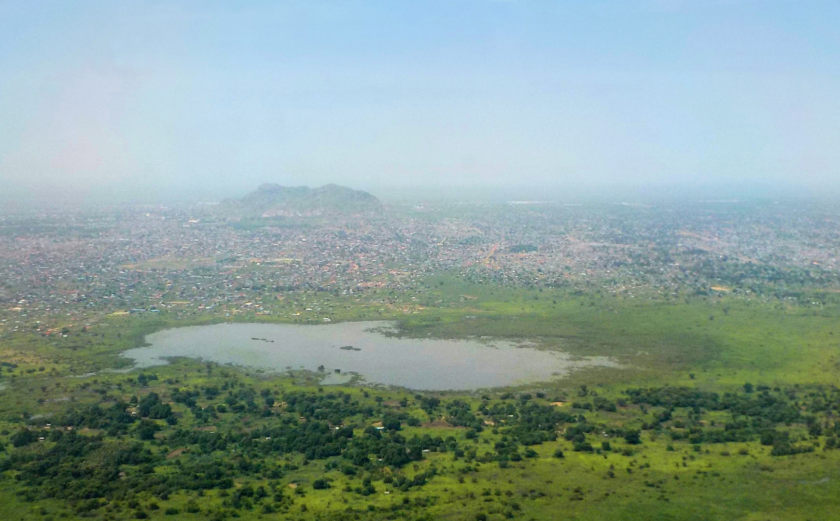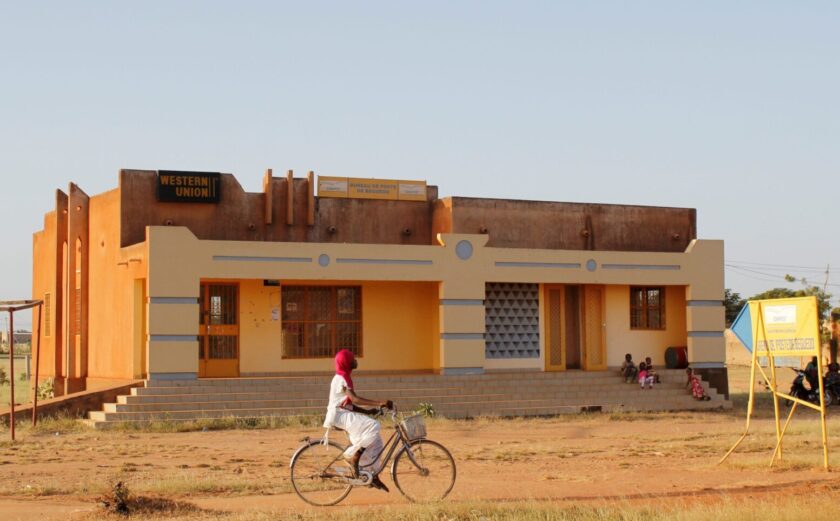
The Global Fragility Act of 2019 (GFA)
The Global Fragility Act of 2019 (GFA) H.R. 2116/S.727 is legislation with bipartisan support that seeks to enhance stabilization of conflict-affected areas and prevent violence and fragility globally. It is designed to streamline and improve programs and efforts within the USG to address violent conflict overseas using a “3D” approach of development, diplomacy, and defense. It builds upon lessons learned from over two decades of attempts at stabilization in conflict-affected countries, particularly Iraq and Afghanistan, as well as the 2016 Fragility Study Group, 2018 Stabilization Assistance Review, and the 2019 USIP Task Force on Extremism in Fragile Contexts, among other inputs.
On May 20, 2019, H.R. 2116 passed the House of Representatives by voice vote.
House sponsors and cosponsors (15) currently include Representatives Engel (D-NY), McCaul (R-TX), A. Smith (D-WA), Wagner (R-MO), Keating (D-MA), Rooney (R-FL), Lieu (D-CA), Wright (R-TX), Fitzpatrick (R-PA), Malinowski (D-NJ), Andy Kim (D-NJ), Ron Kind (D-WI), Jim McGovern (D-MA), Ed Case (D-HI), and Karen Bass (D-CA).
During the May 20 debate, Rep. McCaul said, “[The GFA] requires the administration to launch a new initiative. This will ensure that the United States takes a whole of government approach by preventing violent conflict rather than individual agencies funding piecemeal uncoordinated activities…We must get this right. We are seeing unprecedented levels of instability, displacement and humanitarian needs around the world, in Syria, Venezuela, Yemen, South Sudan and elsewhere. Preventing conflict can save U.S. taxpayer dollars and make our country and the rest of the world safer.”
Chairman Engel added, “This legislation gets to the heart of what we want to see of our diplomatic efforts around the world. and preventing the start of violence in places where factors are ripe for its outbreak. We have learned a great deal about what drives violence and instability in what are called fragile states. We know it takes goals and strategies. We know it takes strong sustained investment over the long-term. We know it takes serious research and analysis and that it takes agencies across government working together towards the same goals. This bill takes all that knowledge and establishes as overarching policy framework for the United States government. It will help ensure that our government is working in lockstep to prevent violence and extremism and that we are working closely with civil society groups to assess internal and extend external drivers of instability to implement these initiatives on the ground and to monitor and evaluate the work.”
Senate sponsors include Senators Coons (D-DE), Graham (R-SC), Merkley (D-OR), Rubio (R-FL), Young (R-IN), Baldwin (D-WI), Casey (D-PA), Boozman, (R-AR), Markey (D-MA), Cardin (D-MD), and Gardner (R-CO).
A previous version of this bill, the Global Fragility and Violence Reduction Act, was introduced as H.R. 5273 and S. 3368 in 2018. It passed the House by a vote of 376-16 in November 2018, but did not pass the Senate on account of two votes.
Recent statements and messages by InterAction members:
To date, 55+ NGOs have publicly endorsed the bill, including 10 InterAction members.
Alliance for Peacebuilding recent tweet and coalition landing page
ONE Campaign statement by North America Executive Director Tom Hart
Select statements by US Members of Congress:
Rep. McCaul (R-TX)
“The Chairman and I introduced the Global Fragility Act, which I think is a very important bill to help stabilize the destabilized continent, particularly when you look at the Sahel which the Department of Defense, as Ms. Lenihan knows very well, the Sahel is going to be the next hot spot. If we can’t do the prevention piece right, then we have to send in the military. I think the Global Fragility Act is a good playbook for the Department of Defense to look at how we can prevent extremism so we don’t have to go in and kill.” Source at Hearing on Democracy, Development, and Defense: Rebalancing U.S.-Africa Policy
“We really need to address this right now because time and time again when we don’t, then we’ve got to put our military in. As Mattis said before, I’d rather fully fund the State Department than have to buy more bullets and have to kill people. I think you’re spot on, and it’s a prevention piece. We’ve done a good job defending the United States from terrorist attacks. We’ve done a really good job offensively, killing the terrorists. The piece we haven’t done really well, in my judgment, is what you’re talking about, and that’s the prevention piece. And that’s what the Global Fragility Act is designed to do…The Global Fragility Act “is more preventative than just reacting. Because if we can’t win on the preventative, diplomacy side, that’s when you put your military in”…“You’ve got to get your foreign policy right before you put the military in, and that’s what we’re talking about in the Sahel and Africa. When the diplomats fail, that’s when we go to war.” Source at The Heritage Foundation
Rep. Engel (D-NY):
“One of our biggest policy challenges in sub Saharan Africa is figuring out how to help stabilize fragile states and reduce violence. Over the past 20 years, we’ve learned a lot about what works – and what doesn’t. We know that it requires strategic vision, it takes adequate long-term funding, and it takes coordination across the United States Government. Mr. McCaul and I recently reintroduced the Global Fragility Act to promote this approach. Our bill would make sure relevant agencies are working closely together over the long term to address state fragility and to prevent violence and extremism in priority countries and regions around the world. This would be the top American goal in these countries, not a second or third-tier objective.” Source at Hearing on Democracy, Development, and Defense: Rebalancing U.S.-Africa Policy
Rep. Wagner (R-MO):
“The Global Fragility Act would better orient America’s diplomatic efforts toward protecting vulnerable populations living in conflict-affected areas…Prevention of conflict abroad also leads to a safer America at home.”
Rep. A. Smith (D-WA):
“Better coordination within the U.S. government, and with civil society and international partners, is critical to tackling the complex challenge of preventing and reducing extremism around the world.”
Senator Coons (D-DE):
“The U.S. is a leader in responding to global humanitarian crises, yet lacks a long-term, cohesive strategy for addressing the root causes of extremism and instability that turn fragile states into failed states.”
Statements by the US Administration:
Comments at the Subcommittee Review of the FY2020 Budget Request for the State Department (Source):
Mike Pompeo, Secretary of State:
“[The objective is] something the State Dept. agrees with,” and “it is the right plan and it is the most cost-effective way to tackle this problem, as well.”
Mark Green, USAID Administrator:
“This legislation and the thrust behind is most welcome and we look forward to working with you on it. As we’ve talked about…Nature abhors a vacuum and so does stability and right now there is a vacuum in many ways, particularly in the Sahel region. We need to sharpen our tools and harped our coordination across the interagency to make sure that we deploy them carefully and in a coordinated fashion and I think you’ve touched upon the right mix so we look forward to working with you on it, it’s very, very important.”
Comment at CSIS Pursuing Effective and Conflict-Aware Stabilization event
Denise Natali, Assistant Secretary of State, Bureau of Conflict and Stabilization Operations
“Firstly, the State Department broadly supports the GFA, as you know there are two versions, there is a house version and a version in the Senate. Both waiting to become a bill. Broadly the state department supports this effort, which incorporates both versions, even though they have elements of distinction, they really both are grounded in core principles of the SAR- the framework that’s is woven in through both of these acts. More targeted assistance, working with local partners on the ground, assuring that civil society plays a part, measurable outcomes, disciplined approach, so whatever version or combination of versions comes out of this- we are prepared and look forward to supporting this bill with the principles of the SAR in mind.” Source
Tweet about this using the hashtag #GlobalFragilityAct









